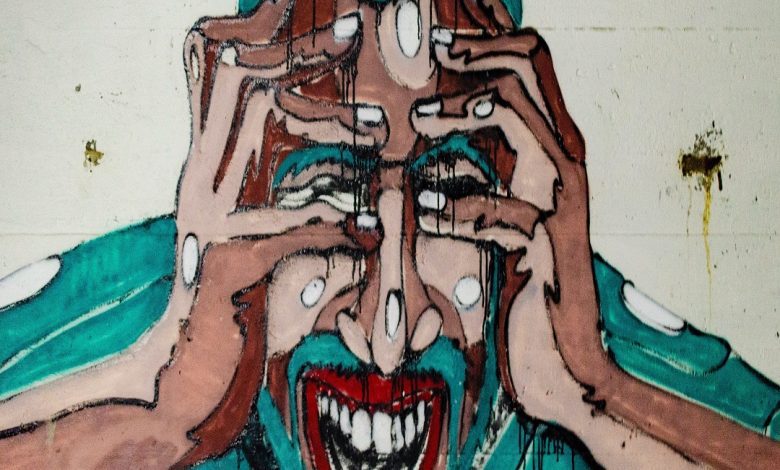What Are Pain And Suffering? Is It The Outcome Of Karma?

Pain and suffering are two universal experiences in human life. Whether it is a physical pain of an injury or illness, or the emotional pain of grief, loss, or betrayal, we have all faced suffering at some point in our lives.
But what exactly are pain and suffering? And what role does the law of karma play in determining our experience of it?
There is no single answer to these questions, as different religions and philosophies offer their perspectives on the nature of pain and suffering. This blog post will explore some of these differing viewpoints, from the Buddhist concept of dukkha to the Christian belief in redemptive suffering.
Ultimately, there is no easy solution to the problem of pain and suffering. However, by understanding its multi-dimensional nature, we can find ways to ease our anguish and bring more compassion into the world.
The Origins Of Pain And Suffering
One of the most common questions about pain and suffering is: why does it exist? If there is a loving God, why do we experience so much hurt and injustice in the world?
There are several possible explanations for this age-old question. In some cases, suffering may be seen as a necessary part of the human condition, which we all must go through to grow and mature. As the saying goes, what doesn’t kill us makes us stronger.
In other cases, suffering may be seen as punishment for our sins or wrongdoings. This is known as the principle of karma in many Eastern religions, such as Hinduism and Buddhism. According to this belief, our sufferings in this life result from our actions in previous lives. Thus, to end our cycle of pain and suffering, we need to purify our karma through good deeds in this life.
The Origins Of Pain And Suffering
Most of us have experienced pain and suffering at some point. But what are they? And where do they come from?
Pain is physical or emotional discomfort caused by illness, injury, or loss. It’s the body’s way of telling us that something is wrong. Suffering, on the other hand, is defined as mental anguish or physical hardship brought about by a difficult situation. It’s the mind’s way of processing pain and trying to make sense of it.
There are many different theories out there about the origins of pain and suffering. Some believe it’s an essential part of life that helps us grow and learn lessons we need to know. Others think it’s a punishment for our past actions (karma). And still, others believe that it is simply random lousy luck with no real rhyme or reason behind it all.
No matter what you believe about its origins, one thing is sure: pain and suffering can be incredibly tough to deal with. If you find yourself going through a tough time right now, know that you are not alone – millions of people worldwide are experiencing similar challenges at this very moment.”
The Role Of Karma In Pain And Suffering
Karma is often thought of as a form of cosmic justice – what goes around comes around. You’ll be rewarded in this life or the next if you do good deeds. If you do evil deeds, you’ll be penalized accordingly. This belief is at the heart of many Eastern religions and philosophies, including Buddhism and Hinduism.
In recent years, Westerners have become more interested in karma as well. The concept has been popularized by celebrities like Oprah Winfrey and Rhonda Byrne (author of “The Secret”). Even President Barack Obama mentioned karma during his first presidential campaign in 2008.
So what does all this have to do with pain and suffering? Some people believe that our individual experiences of pain and suffering are directly related to our past actions (karma). In other words, if we’ve done bad things in our past lives (or even this one), we may be experiencing consequences for those actions now – either in this life or the next.” By performing good deeds, we can influence our future karma and keep our spiritual health.
The Buddhist Approach To Pain And Suffering
The Buddha was born into a wealthy family, but he saw firsthand the suffering that people endure. He witnessed sickness, old age, and death – things that eventually happen to us. He also realized that wealth and status could not protect us from these realities of life.
The Buddha’s goal was to find a way out of this cycle of suffering. After years of study and meditation, he finally attained Enlightenment and became the Buddha (“enlightened one”). The core teachings of Buddhism revolve around his discoveries about suffering and the way out of it.
One common misconception about Buddhism is that Buddhists believe in reincarnation (the belief that we are reborn into different bodies after our current life ends). While some schools of Buddhism believe in reincarnation, others do not, so it depends on which tradition you follow.”
The Hindu Approach To Pain And Suffering
Hindus believe in the law of karma, which is often summed up as “what goes around comes around.” In other words, our current good and bad situations result from our past actions.
This belief has several implications for how Hindus understand pain and suffering:
- It means that we each can change our destiny by changing our behavior.
- It gives us a way to make sense of difficult life experiences: if we’re going through tough times, it may be because we did something to deserve it (karma can be either positive or negative).
- This belief helps Hindus maintain a sense of hope and optimism despite difficulties; they know that their good deeds will eventually catch up with them.”
The Christian Approach To Pain And Suffering
Christians believe that pain and suffering result from man’s fall. When Adam and Eve sinned, they introduced death and suffering into the world.
This doesn’t mean that God is responsible for our suffering – instead, it’s a consequence of living in a broken world. But because Christians believe that God is good, they also think he can use suffering to achieve his purposes. For example, going through tough times can make us stronger people or draw us closer to God.”
The Islamic Approach To Pain And Suffering
Muslims believe that pain and suffering are a part of life, but they also think Allah is good and just.
This means that while difficult experiences may be hard to understand, Muslims trust that Allah knows what he’s doing and everything happens for a reason. Suffering can be seen as a test from Allah – if we pass it, we will be rewarded in the afterlife.
It’s also important to remember that Islam teaches us not to focus solely on this life; instead, we should keep our sights set on the hereafter.”
Conclusion: What Can Be Done About Pain And Suffering?
There is no one answer to the question of what can be done about pain and suffering. Different religions and philosophies offer different perspectives on this challenging topic.
One thing that many approaches have in common is that our current situation – both good and bad – is a result of our past actions. This belief, known as karma, suggests that we each have the power to change our destiny by changing our behavior. If we’re going through tough times, it may be because we did something to deserve it (karma can be either positive or negative).
Buddhism teaches that suffering is caused by attachment to impermanent things. The only way to end suffering is to let go of these attachments. This can be a complex process, but Buddhism offers tools such as meditation to help us on this journey.
Hinduism also believes in karma but sees it differently than Buddhists do. Hindus believe in reincarnation, which means that after we die, our soul will be reborn into another body based on our karmic balance sheet from this life. The karmic meaning highlights how important our activities are and how they can impact both us and the world we live in. If we accumulate more good karma than bad karma in this life, we will be born into a higher social class or even heaven in the next life; if not, we will experience a rebirth into a lower social class or hell. Therefore, Hindus believe that suffering is part of the cycle of life and death that everyone goes through until they reach Nirvana (a state of perfect peace). To escape from this cycle and achieve Nirvana, Hindus must live according to Dharma (moral law), which includes doing good deeds and avoiding evil actions.”





